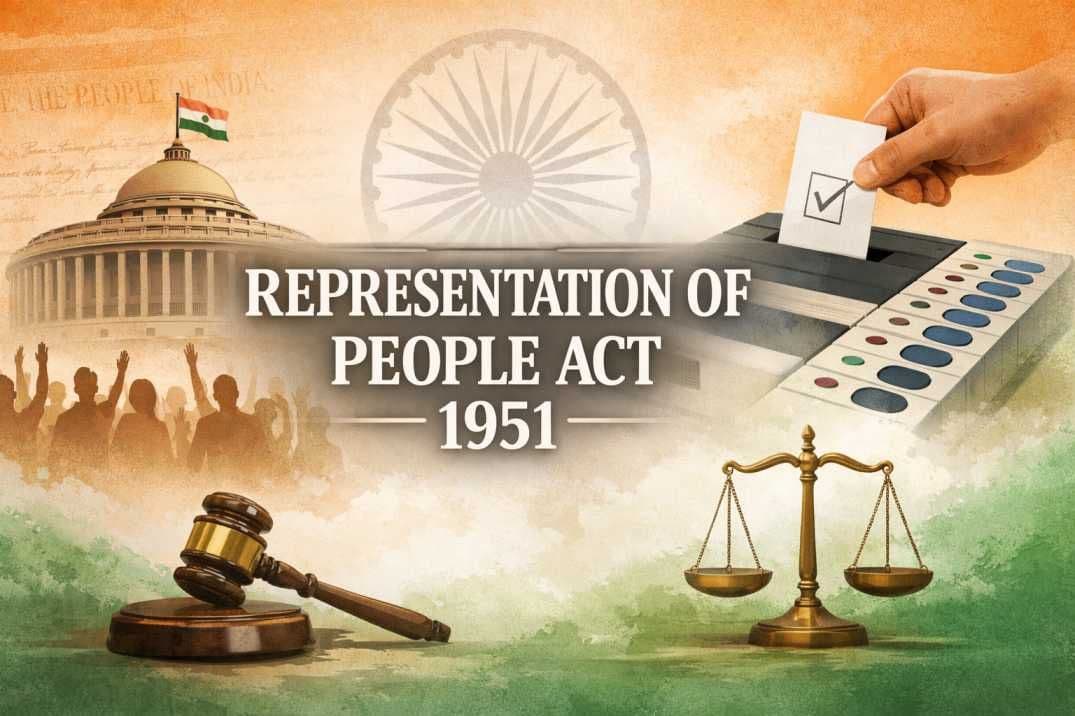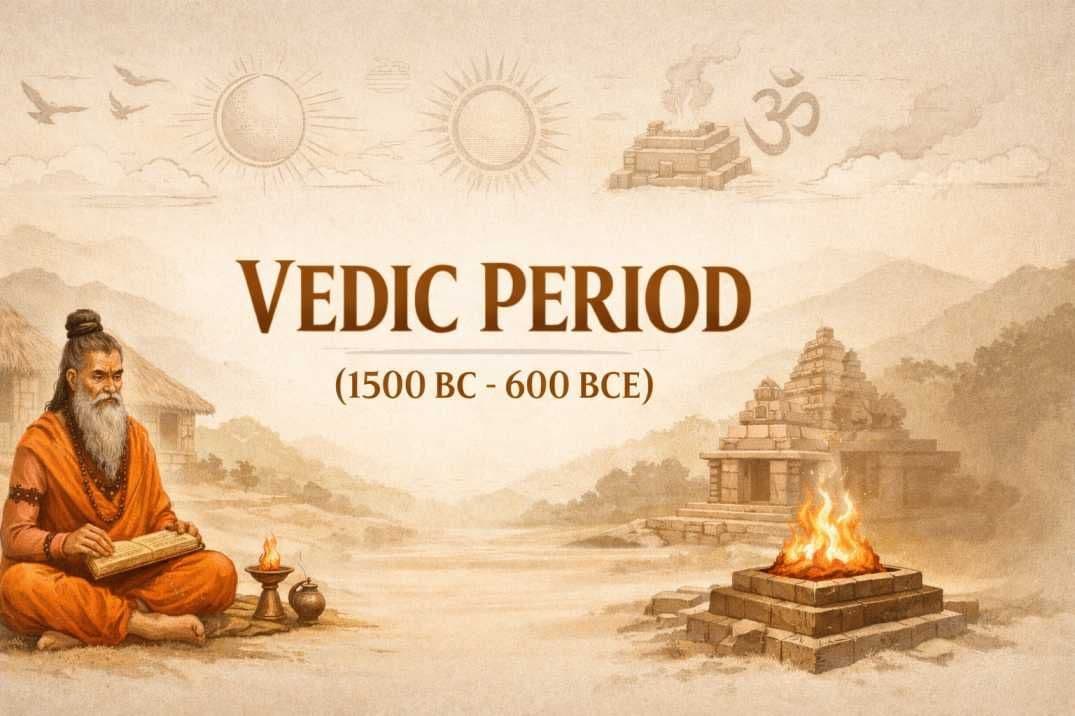DPSP UPSC Complete Notes: Articles, Classification, Features & Criticism
Oct, 2025
•4 min read
Directive Principles of State Policy (DPSP) are guidelines and principles enshrined in Part IV (Articles 36-51) of the Indian Constitution. They direct the State to frame governance and policies that promote the welfare of the people and build a just society.
While not legally enforceable like Fundamental Rights, these principles are considered fundamental in governing the country and forming the moral compass of the Indian state.
Key Facts:
- DPSPs are contained in Articles 36 to 51 of the Indian Constitution.
- The concept was borrowed from the Irish Constitution.
- Dr B.R. Ambedkar described these as "Novel Features" of the Indian Constitution.
- Granville Austin termed them the "Conscience of the Constitution" along with Fundamental Rights.
- They aim to establish a Welfare State by promoting social, economic, and political justice.
- Article 37 states that DPSPs are fundamental in governance but are non-justiciable (not enforceable in courts).
Must read: Important Articles in the Indian Constitution Related to UPSC Functions and Powers
2. Gandhian Principles
These principles promote Gandhian values of social justice, decentralization, self-sufficiency, village autonomy, and moral governance based on Gandhi's vision of independent India.
| Article | Subject-Matter | Key Directives |
|---|---|---|
| Article 40 | Organization of Village Panchayats |
|
| Article 43 | Promotion of Cottage Industries |
|
| Article 43B | Promotion of Cooperative Societies |
|
| Article 46 | Promotion of Educational and Economic Interests of Scheduled Castes, Scheduled Tribes, and Other Weaker Sections. |
|
| Article 47 | Prohibition of Consumption of Intoxicating Drinks and Drugs |
|
| Article 48 | Organization of Agriculture and Animal Husbandry |
|
Also read: Preamble of India UPSC Notes: Meaning, Objectives, Resolution & Landmark Cases Explained
3. Liberal-Intellectual Principles
These principles reflect the ideology of liberalism, emphasizing individual freedoms, civil liberties, the protection of cultural heritage, institutional integrity, and international relations based on law and morality.
| Article | Subject-Matter | Key Directives |
|---|---|---|
| Article 44 | Uniform Civil Code |
|
| Article 45 | Provision for Early Childhood Care and Education |
|
| Article 48 | Organization of Agriculture on Modern Lines |
|
| Article 48A | Protection and Improvement of the Environment |
|
| Article 49 | Protection of Monuments of National Importance |
|
| Article 50 | Separation of the Judiciary from the Executive |
|
| Article 51 | Promotion of International Peace and Security |
|
Article 36 - Definition of State: It defines "State" to include the Government and Parliament of India, State governments and legislatures, and all local authorities and other bodies within Indian territory exercising governmental functions.
Key Features of Directive Principles of State Policy
The Directive Principles of State Policy encompass several distinctive characteristics that set them apart in the constitutional framework and shape their role in governance.
- Non-Justiciability: Unlike Fundamental Rights, DPSPs cannot be enforced through courts. Citizens cannot approach the judiciary to demand compliance, but the state remains morally and politically bound to implement them.
- Fundamental in Governance: Article 37 clearly states that DPSPs are fundamental in the governance of the country, and it is the duty of the State to apply them in making laws and policies.
- Dynamic and Evolving: DPSPs are not static principles but evolve through constitutional amendments to address emerging socio-economic challenges and changing societal needs.
- Welfare State Orientation: DPSPs are aimed at promoting the welfare of people and establishing a just society. They emphasize principles of justice, equality, and fraternity in governance.
- Socio-Economic Objectives: DPSPs establish social and economic goals that the State should strive to achieve, including social justice, economic welfare, and overall national development.
- Balance Between Rights and Duties: While Fundamental Rights focus on protecting individual liberties, DPSPs emphasize balancing rights with corresponding duties and placing collective welfare over individual interests.
Also read: Lokpal and Lokayukta: UPSC Polity Notes
Key Amendments in the Directive Principles of State Policy (DPSP)
The Directive Principles have been amended and expanded through various constitutional amendments to address emerging needs and strengthen the welfare state framework. Here are the major amendments:
1. 42nd Amendment Act, 1976
- Objective: To strengthen the social and environmental dimensions of DPSPs.
Newly Added Provisions:
- Article 39 (Clause f): Ensures healthy development of children.
- Article 39A: Provides for equal justice and free legal aid to ensure access to justice for all citizens.
- Article 43A: Promotes participation of workers in the management of industries.
- Article 48A: Directs the State to protect and improve the environment and safeguard forests and wildlife.
Impact: Gave primacy to DPSPs over Fundamental Rights; however, this primacy was later curtailed by judicial review.
2. 44th Amendment Act, 1978
- Objective: To further promote equality as a constitutional goal.
Newly Added Provision:
- Article 38(2): Directs the State to minimize inequalities in income, status, facilities, and opportunities not only among individuals but also among groups and regions.
3. 86th Amendment Act, 2002
- Objective: To make education a justiciable right.
Key Changes:
- Inserted Article 21A: Made free and compulsory education for children aged 6–14 years a Fundamental Right.
- Modified Article 45: Shifted focus to provide early childhood care and education for children below 6 years as a DPSP.
4. 97th Amendment Act, 2011
- Objective: To promote and strengthen cooperative societies.
New Additions:
- Article 43B: Directs the State to encourage voluntary formation, autonomous functioning, democratic control, and professional management of cooperative societies.
- Added Part IXB (Articles 243ZH–243ZT): Provides a detailed framework for cooperative governance.
- Judicial Development: Some provisions of Part IXB were struck down by the Supreme Court for not being ratified by at least half of the State legislatures, as required under Article 368(2).
Multiple Choice Questions
QUESTION 1
Easy
Indian Polity
Under the Indian Constitution, concentration of wealth violates
Select an option to attempt
Why are Directive Principles Non-Justiciable in Nature?
Article 37 clearly states that DPSPs cannot be enforced by any court. This non-justiciable nature exists for several important reasons:
- State Autonomy: Non-justiciability gives the government freedom to decide when, where, and how to implement these principles based on available resources.
- Practical Implementation: Making DPSPs justiciable would burden the judiciary and force the State to implement all principles simultaneously, which was unrealistic for a developing nation.
- Political Reality: Socio-economic goals require sustained political commitment and long-term planning. State discretion allows pragmatic governance based on priorities.
- Flexibility in Governance: Governments can adapt strategies, create new policies, and respond to changing conditions without facing constitutional violations.
- Moral Obligation: Though not legally enforceable, DPSPs create a strong moral and political duty on the State, ensuring accountability to the people.
Important Note: Despite being non-justiciable, the Supreme Court increasingly uses DPSPs to interpret laws and evaluate government actions, showing their practical significance in governance.
Difference Between Fundamental Rights and Directive Principles
Fundamental Rights and Directive Principles of State Policy are complementary but have fundamental differences in nature, application, and legal enforceability. Understanding these distinctions is essential for UPSC preparation.
| Fundamental Rights | Directive Principles of State Policy |
|---|---|
| Legally enforceable; can be enforced in court. | Non-enforceable in court; Article 37 prohibits judicial enforcement. |
| Negative rights: protect citizens from state interference. | Positive rights: direct state action to promote welfare. |
| Justiciable; violations can be challenged. | Non-justiciable; cannot be directly enforced through courts. |
| Focus on individual liberty and freedom. | Focus on the social and economic welfare of society. |
| Violation provides the right to move the court and seek remedies. | No legal remedy; relies on moral and political obligation. |
| Take precedence over other provisions of the Constitution. | Cannot override Fundamental Rights but guide state policy. |
Important: Fundamental Rights and DPSPs are not adversarial but complementary. The Supreme Court in the Minerva Mills case (1980) held that the balance and harmony between them is an essential feature of the basic structure of the Constitution.
Significance of Directive Principles of State Policy (DPSP)
Although non-justiciable, Directive Principles hold immense significance in the Indian constitutional framework and governance.
1. Foundation of the Welfare State
- Form the philosophical and constitutional basis of India's welfare state model.
- Direct State to prioritize citizen welfare and social justice over market forces alone.
2. Socio-Economic Rights Framework
- Supplement Fundamental Rights by establishing social and economic rights.
- Address human needs such as livelihood, education, health, and social security.
3. Guide for Legislation and Policy
- Direct legislators and executives in formulating laws aligned with constitutional social goals.
- Provide constitutional direction and benchmarks for policy evaluation.
4. Judicial Interpretation and Constitutional Development
- Courts use DPSPs to interpret Fundamental Rights expansively (e.g., right to life extended to include livelihood, health, and education).
- Aid courts in evaluating the constitutionality of state actions without direct enforcement.
5. Government Accountability Through Democratic Process
- Enable citizens to hold governments accountable for DPSP implementation through electoral and democratic means.
- Create a basis for public evaluation of government performance on welfare goals.
Criticism of Directive Principles of State Policy
Despite their constitutional importance, DPSPs face significant criticism from scholars and jurists regarding their enforceability, consistency, and practical implementation.
1. Non-Justiciability and Lack of Legal Force
- DPSPs cannot be enforced through courts; citizens have no legal remedy for violations.
- Governments may ignore principles due to resource constraints or political priorities.
2. Illogical Arrangement and Vagueness
- DPSPs lack systematic organization; similar principles are scattered across articles.
- Vague language allows multiple interpretations, creating implementation confusion.
3. Practical Implementation Gaps
- Many DPSPs remain unfulfilled decades after independence.
- The Uniform Civil Code has been unimplemented despite being a directive for over 70 years.
4. Conflict with Fundamental Rights
- Uniform Civil Code conflicts with religious freedom (Article 25).
5. Selective and Political Implementation
- Different governments implement DPSPs based on political ideology, not constitutional commitment.
Implementation becomes a political tool rather than a constitutional obligation.
UPSC Mains Practice Question
Discuss the role of Directive Principles of State Policy in the context of emerging challenges in governance and public policy in India.
Evaluate Your Answer Now!Way Forward
To enhance the effectiveness of Directive Principles and translate constitutional ideals into ground-level reality, several measures are necessary.
- Enact strong DPSP laws with proper budget allocation.
- Use DPSPs in judicial interpretation and accountability.
- Create independent bodies to track DPSP progress.
- Clarify DPSP provisions and improve Center–State coordination.
- Raise public awareness and use technology for better implementation.
Take Control of Your UPSC Journey with SuperKalam!
Get 24x7 AI mentorship with unlimited subject-wise MCQ practice, Instant mains answer evaluation, and NCERT MCQ practice. Prepare better, faster, and smarter. Start your free trial today!


